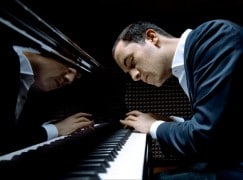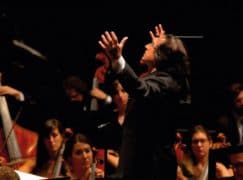The BBC announced proudly today that the Welsh crooner Sir Tom Jones will make his Proms debut on September 1 in a concert marking the 50th anniversary of Stax Records’ 1967 tour. Stax is an American pop label, based in Memphis.
This commercial pop celebration is as low as the BBC has gone in dumbing down the Proms.
The Proms were supposed to be the BBC’s bastion of serious music. The BBC has dozens of pop events and channels but only one classical redoubt – the summer Proms.
Previous controllers have defended the Proms vigorously from populist incursions. But the present BBC Proms director David Pickard and his Radio 3 boss Alan Davey are weaklings who bend the knee to BBC superiors demanding ‘inclusivity’ and ‘relevance’. This last concession amounts to total capitulation.
This year’s Proms have gone all Sir Tom. Knickers will fly in the Royal Albert Hall and the last reason to defend the license fee for the purpose of public elevation will go down the Kensington drain.
It’s a day of shame.

UPDATE: David Pickard has just tweeted:
Askonas Holt have signed James Gaffigan, American chief conductor of the Lucerne Symphony, securing him dates in the next season with Chicago, Philadelphia and the Met.
Gaffigan, 38, was previously listed with Nick Mathias at IMG.
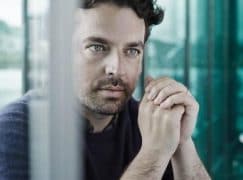
press release:
On July 6 and 8, over 200 Italian and Iranian musicians will make history with two concerts, performing together on stage in Tehran and Ravenna led by Italian cultural ambassador, Riccardo Muti. The project, instigated and curated by the Ravenna Festival in collaboration with the Roudaki Foundation, Tehran, celebrates 20 years of “The Roads of Friendship” – an annual lay pilgrimage, re-establishing ancient ties to places of historical importance.
Joining Riccardo Muti on stage in both Tehran and Ravenna are the Luigi Cherubini Youth Orchestra, musicians from Italy’s major theatres, the chorus of Piacenza’s Municipal Theatre and members of the Tehran Symphony Orchestra and Choir. The programme is dedicated to highlights from Verdi’s operas with Italian soloists Piero Pretti, Luca Salsi and Riccardo Zanellato.
This significant occasion comes to light less than two years after the re-birth of the Tehran Symphony Orchestra – whose eight-decade history has accompanied the events of the Country – and is the first international collaboration of Iranian and Western orchestras.
Following three days of rehearsals in Tehran, the first concert will take place on July 6 in the elegant Vahdat Hall, home to the Roudaki Foundation. Following their return to Europe, the Italian musicians will host their Iranian counterparts for the second concert on July 8 at Ravenna’s 4000 seater concert hall – the Palazzo Mauro de André – and the event will be filmed for international broadcast by RAI TV.
In advance of travelling to Iran, Riccardo Muti commented “Better than economy, better than politics, better than verbal languages, music can provide direct communication, tugging at the heartstrings with no need for mediation. And this leads to the concerts of the “Road of Friendship” programme, to the heart of their very reason for being.”
The sudden death has been announced of the generous publisher Barrie Pettman, founder of Emerald Group Publishing and ex-president of Burke’s Peerage. He was 73.
A major donor to the UK Conservative Party, Professor Pettman also founded the Dare Foundation which supports opera studies at Leeds University in conjunction with Opera North.
Richard Mantle, general director, called him ‘a much-loved member of the Opera North family’.
He also supported musical and academic causes in New Zealand.
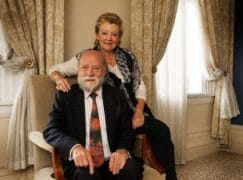
Dr. Katherine Snyder looks after some of the most difficult child abuse cases in Denver, Colorado.
The stress is unimaginable.
For relief, she sings with local opera companies.
In November she can be seen in La Bohème at Opera Colorado.
Read an uplifting report here.
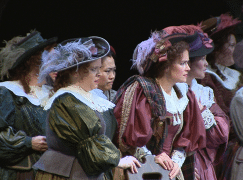
Garsington Opera, 50 minutes’ drive from central London, has turned in record attendance figures for this summer. If the season were longer and the pop-up house larger (just 600 seats), it could probably do twice as well.
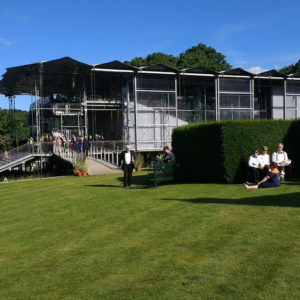
The performance quality just keep on getting higher. We saw Rossini’s Turco in Italia yesterday – a piece of fluff for a summer’s night, redeemed by quicksilver comic direction (Martin Duncan), pinpoint orchestral playing (conductor: David Parry) and a sex-manic, melting, matchless account of Fiorilla by the inexhaustible Sarah Tynan – so swift about the stage you couldn’t imagine the role sung or played any better.
The laughs came thick and fast. Geoffrey Dolton kept the cuckold role of Geronio just the right side of farce, Quirijn de Lang was a convincing Riviera Turk and if Katie Bray’s Zaida all but disappeared in the second act that was more Rossini’s fault than hers.
Compared to the 1954 Callas recording from La Scala, this was lighter and more musical in every department. The notion that an English country house could match the home of Italian opera in a Rossini repertoire piece might sound absurd, but Callas’s voice was too shrill for Fiorilla, Nicola Rossi-Lemeni was portentous as the Turk, the rest of the cast was variable and the orchestra was decidedly poor. Give me Sarah Tynan at Garsington any summer’s night.
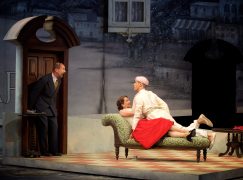
photo: Alice Pennefather/Garsington Opera
Saturday’s night’s Great Sounds of Italian Cinema at Vienna’s Konzerthaus was disrupted by a fire alarm.
The sold-out house – including 95 players of the Janáček Philharmonic Orchestra and a 60 singers in the Neue Wiener Stimmen chorus – was cleared within a commendable four minutes.
The fire was traced to the roof and extinguished. The concert resumed after a 30-minute break, according to our source in the orchestra.
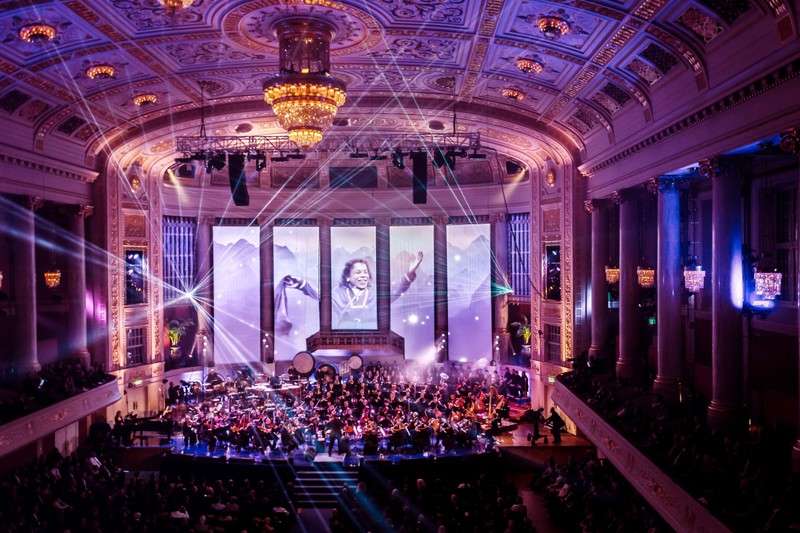
The Irish Arts Council has announced the merger of Opera Theatre Company and Wide Open Opera to become its ‘preferred provider of main-scale opera in Dublin’, from 2018.
Both companies have Fergus Sheil as artistic director. The Arts Council says the merger ‘will result in the return to the Dublin stage, after a gap of some eight years, of regular Irish productions of the great operatic repertoire.’
Irish singers are hailing the move as a breakthrough and a blessing.
More here.
Any chance of some matching blue-sky thinking in England?

Bord Gais Energy Theatre, Dublin
The International Double Reed Society forum has posted news of the death of Svetoslav Slavchev, a well-known Bulgarian bassoonist with a busy internet profile. He was principal bassoon of the State Opera Varna for a decade and pursued a successful career with his own trio.
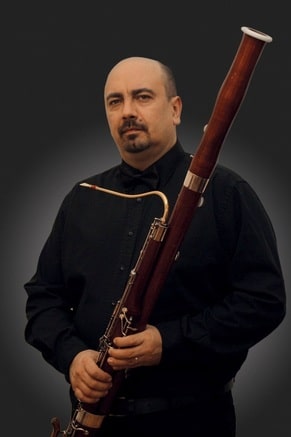
James Spearing writes from Tallahassee, Florida:
Mr. Slavchev not only was an excellent bassoonist who performed often across Eastern Europe but also was very active on the internet; he had a large social media presence on Facebook and contributed a significant number of pieces of music to the Russian bassoon sheet music library website many of which I have used in auditions and to great success. Without his generosity in uploading so many works, many of which I would never have heard if not for him, I would not have had the opportunities I have now as a young adult bassoonist.
He was a long time member of the International Double Reed Society and regularly brought a smile to his readers with a jovial, lighthearted and very frank sense of humor. It is painful and unexpected to see the news, and I hope that others can chime in as well for the efforts of Mr. Slavchev, which have undoubtedly helped many, including me many thousands of miles away, in our musical journeys.
The Swedish soprano Iréne Theorin has posted that she sang the role in Budapest on June 16, 17 and 18, just like they used to do at Bayreuth. Current practice is for artists to take a two or three day break.
But does everyone need time off when the blood is high and the fires burning?

Spreading the word for some friends who are pursuing a good cause:
A report published in 2000 – the Mattéoli Report – highlighted the unsatisfactory progress achieved in restoring property looted from France during the Second World War. Since that date, however, the looting of Jewish property throughout Europe has been the subject of a considerable research. Box-office hits such as Monuments Men and Woman in Gold have also done much to bring the sensitive issue of art-work restitution into the limelight. Looted libraries, for example, are currently the subject of some attention. But the matter of looted musical instruments remains in the main ignored.
Nonetheless, we feel that the time has come to establish the history of looted musical instruments, as a mark of respect to their original owners and as an act of research on its own merits, with a view to establishing the singular and often complex trajectory of every surviving instrument.
No other organization dedicated to such a task as yet exists. Gather and record the last surviving witness accounts is our priority. But our aim is also to cross-reference various existing lists, exploit all available archival resources on the subject, and raise public awareness by alerting scientists and musicians, and registering new demands for restitution.
Our webpage is: www.musiqueetspoliations.com . Please don’t hesitate to use the contact form. In the near future, we shall return to you with a subscription form. We would be very grateful if you would dispatch it around you.
Depuis la publication du rapport Mattéoli en 2000, la spoliation des biens juifs par les nazis à travers l’Europe a fait l’objet de nombreuses études et le succès de films tels que Monuments Men ou La Femme au Tableau ont largement contribué à faire la lumière sur la difficile question de la restitution des oeuvres d’art. Si la question des bibliothèques spoliées est aujourd’hui présente dans les esprits, celle des instruments de musique, elle, n’est que rarement abordée.
Notre association loi 1901 s’est donné pour mission d’éclairer ce pan encore obscur de notre Histoire récente. Si la priorité est donnée aux recueils des derniers témoignages directs ou indirects de cette douloureuse époque, l’association s’attachera également à établir et croiser les listes et bases de données existantes, explorer les archives, sensibiliser la communauté musicale et scientifique, encourager les publications, et accompagner les nouvelles demandes de restitution ou recherche de traçabilité.
N’hésitez pas à consulter notre page web www.musiqueetspoliations.com et à utiliser le formulaire de contact. Nous reviendrons ultérieurement vers vous avec un formulaire d’adhésion que nous vous serions grées de bien vouloir diffuser autour de vous.
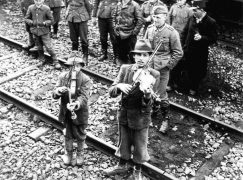
Here are two accounts of what happened at the Komische Oper on Friday night. The first is by the soloist, Gabriela Montero. The second is by an audience member, the German-based pianist Igor Levit.
Gabriela first:
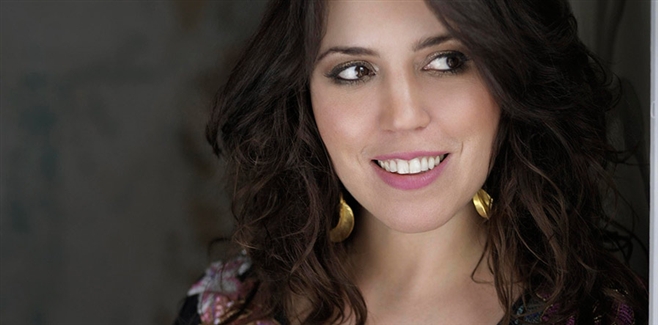
There are many ways to break the silence that has enveloped the Venezuelan tragedy for so many years. What happened at the Komische Oper on Friday, just as Mirga, the orchestra and I were about to begin Tchaikovsky’s Concerto No.1, was as shocking and desperate, as it was deeply moving.
To our surprise, a Venezuelan man and woman sitting in the front row, far left, rose to their feet and began to sing the Venezuelan National Anthem. Everyone was taken aback. I turned my body towards them, to listen, observe and admire the courage it took for these two people to break the silence, the sacred aura of this temple of classical music.
Who does that? How dare they?
I’ll tell you who and why.
Two people who have lost and suffered so much, who have had so much stolen from them and their families, that they knew that bringing Venezuela to that audience in that moment, and therefore, rupturing the silence and attention that is devoted seconds before the first notes of the music that represents the best of humanity, was as relevant a moment as there ever was to wake the world up of its complacency towards devastation.
After a few minutes of the audience listening attentively, which I must say I do appreciate given that most of them did not understand this act of protest and call for help, Mirga began the concerto. I quickly turned to the piano, and began playing the most heart breaking and powerful rendition of this concerto I have ever given.
After the applause, as I usually do, I took the microphone to do my encore. I wore the new necklace I just had made with the colors of the Venezuelan flag, hung it around my neck, and sat down to explain to the audience what had just happened.
I began by saying,” I want to explain to you what just happened. This couple, whom I have never met, courageously sang our National Anthem, to remind the world that beyond these walls, of this safe concert hall, there are a great many people who are suffering. Our country, Venezuela, is suffering and living its most horrific history”.
At that point, a man yelled from the balcony in German, something to the effects of, ” This is not the place for those political things”.
Of course, I immediately backfired and firmly and loudly replied, ” MUSIC IS ABOUT HUMANITY, OTHERWISE, IT MEANS NOTHING”.
The public supported me with great applause, telling us they understood our message.
Two improvisations followed, and then a touching Lithuanian piece for strings that Mirga had asked me to improvise on.
Below is a photo of my necklace, as my personal way of bringing Venezuela with me to every concert platform, and as my way of telling the Venezuelan people I am always with them.
GM
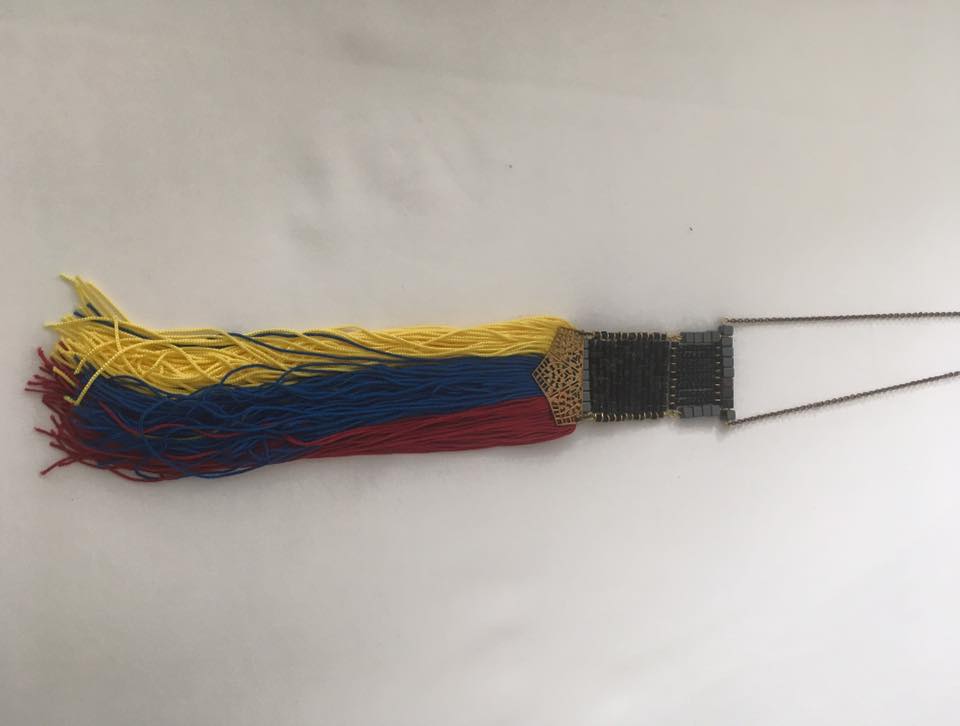
Now (lightly adapted from social-media English) Igor Levit:
Open thoughts about last night.
How many times have we heard all Tchaikovsky’s first Piano Concerto? How often we talk about how “great” the play is on the one hand, how much it is played ” up and down ” etc….
Last night, a very special concert took place at the Komische Oper. Gabriela Montero Mcelroy has just performed this piano concerto with Mirga Gražinytė-Tyla and the orchestra of the Komische Oper. When they were on stage and the conductor wanted to start, two young people suddenly jumped up in the first row and sang the national anthem of Venezuela. First goosebumps moment. The power … can hardly be reflected in words. What warmth, but the energy from Gabriela, who was visibly moved and overwhelmed (no one expected it to be sung, not even the two in the first row, who had met only a few minutes earlier in the foyer)…
What followed was the (most) touching b-minor concerto I could ever hear. Gabriela Montero didn’t interpret it, she told about herself, told us, took us with her, read us … witness. When a concert moves so much more than “interpretation”. the assessment criteria are shifting. It does not matter whether something loud or quiet, fast or slow, hard or soft, appropriate or inappropriate, together or not together. No, there’s something inexpressible and indescribable on these evenings. It creates life among all those involved. There was an artist on the stage, for which the music occupies an incredibly vital importance. She has no distance. She’s exposing herself. Their fight for their country, for their people, their suffering, their hope, which they live, and for which they stand, day by day, hour to hour, all that has been brought alive. She reminded us of every tone that was so intuitive, so breathing out of the wing, that we all suffer, hope, feel, and just to live. We all became music. Music was no longer decoration, she was present. I have the pages of the first sentence so painful, so proud, so moving never heard.
There are now people who believe that political speeches do not belong in a concert. Many artists also think that. It is not a question of speeches. It’s about awareness, about consciousness. Conscious of the fact that no artist, no person, should be hiding out in front of the world. So that every person, regardless of job and task, positioning, fighting, helping – must be human. Gabriela Montero is such a person. She gave all of us not only a wonderful Tchaikovsky concerto yesterday, no, she gave her music a moment that brought us closer to ourselves. I’m still overwhelmed and touched. And grateful.
